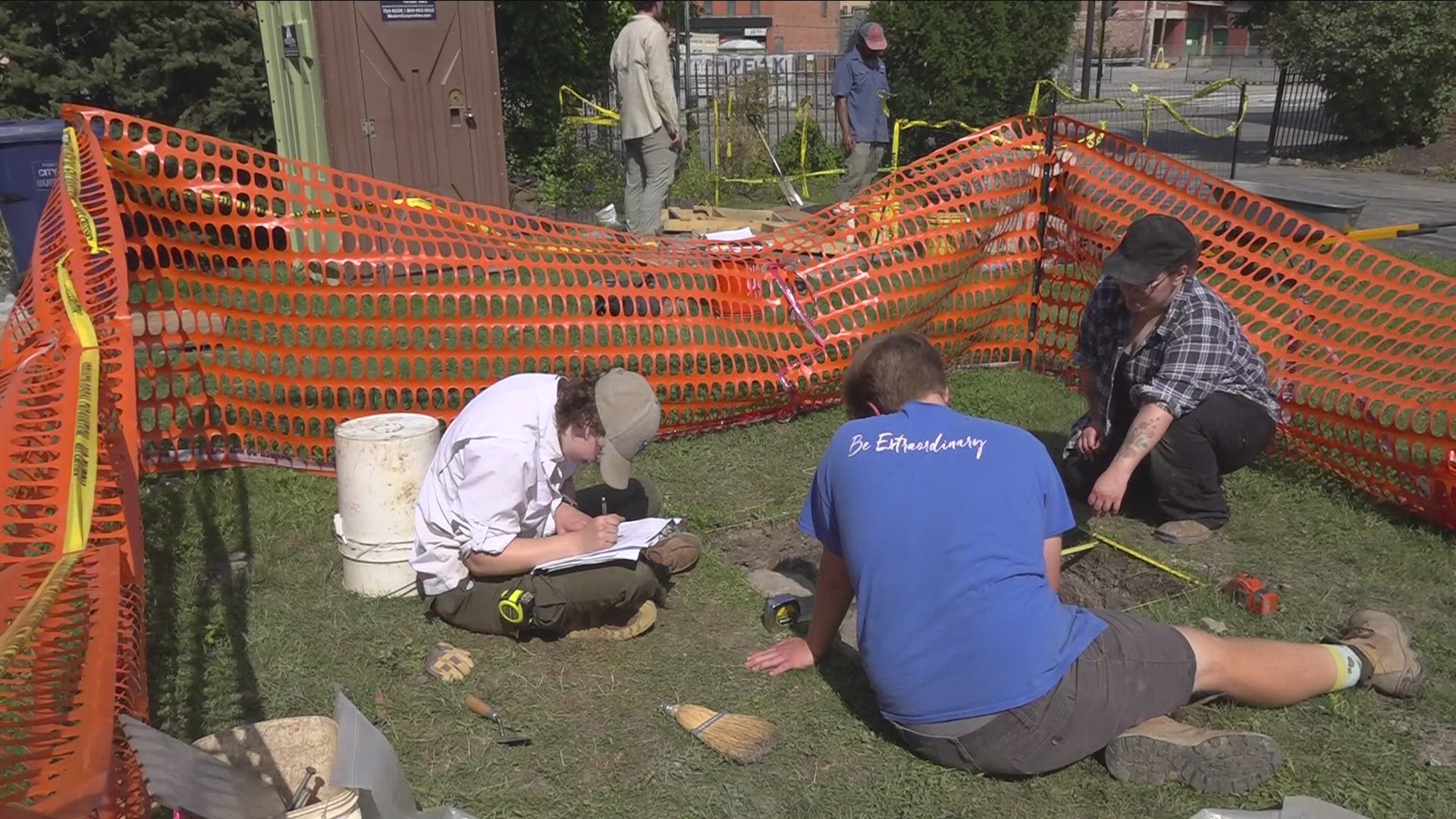BUFFALO, N.Y. — Behind the historic Michigan Street Baptist Church in the African American Heritage Corridor, history is being unearthed.
"There is a wealth of information here that really helps to inform and fill out the story of how the people lived who were connected with the church," said Lillie Wiley-Upshaw, chair of the Buffalo Niagara Freedom station coalition and Michigan Street African American Heritage Corridor.
In partnership with the church, students at the University at Buffalo’s archeological survey have been discovering historical artifacts that are helping to tell the story of some of Buffalo’s earliest trailblazers.
"Peyton Harris, who was one of the wealthiest members of the church and one of the wealthiest citizens in our community at that time, purchased the land that the church sits on, along with a plot beside it for his home and another plot," Wiley-Upshaw said.
The stories of Peyton Harris and Mary Talbot, two foundational members of Buffalo’s African-American community, are front and center as their stories are pieced together.
The dig that started in 2021 is focused on taking people inside the homes of Harris and Talbot, using artifacts dating back to the mid-18th century.
Andy D'Agostino has been working as the crew chief for the UB archeological survey.
"The vast majority of what we've been finding Since 2021, until today, are what we would call domestic housewares. So broken glass. Is broken bowls, you know, jugs, metal from, you know, like early electrical things. But the most exciting thing, in my opinion, is the we found a bunch of ink wells and a bottle in a unit which we believe to be where Peyton Harris's house was," D'Agostino said.
The small pieces of such a large legacy will soon be on display. The church, which is currently undergoing renovations, plans to exhibit the artifacts by this fall.
"Part of what we find will go toward creating these exhibits that will continue to tell the story of these people who made this church so prominent, who were so key in fighting against and fighting against slavery, who were part of the abolitionists, or part of the abolitionist movement, also part of the progressive movement, when African Americans were fighting for our rights," Wiley-Upshaw said.
Community members are welcome to watch the dig in action, and observe archeologists at the site on Fridays and Saturdays until Aug. 31 from 10 a.m. to 3 p.m.
The address is: Michigan Street Baptist Church, 511 Michigan Ave. in Buffalo.

